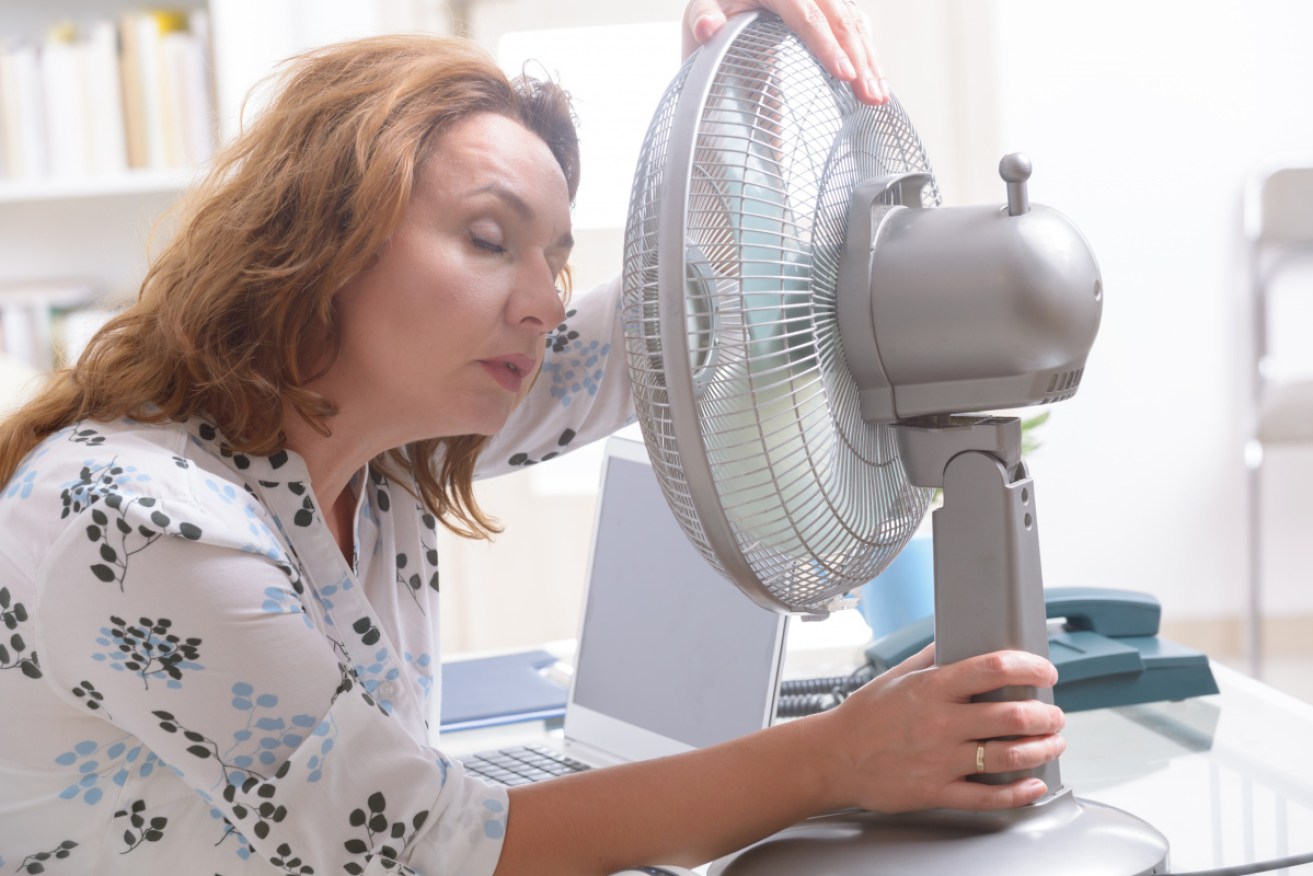The menopause marathon: How bosses could ease ‘the change’ years, from desk fans to extra leave


Older women aren't seen worth investing in at the office, despite their growing numbers. Photo: Supplied
Companies that employ more than 250 people will be required to provide more flexible working arrangements and conditions for menopausal workers, including leave provisions – along the lines of maternity leave that younger women enjoy.
The initiatives would range from flexing working hours to generous leave entitlements, to more breaks.
Overall, the aim is to “accommodate menopause as a long-term fluctuating health condition”.
Dear God, do we have to talk about this stuff?
Probably the most frightening thing for some managers will be the necessity of talking about these issues.
Anyway, calm the heck down, Australian businesses! You’re safe. These new laws would be introduced by the UK Labour Party if they’re successful at the next election.
Which means they probably won’t happen, but at least the issue is getting a much-needed airing.
Some have called the proposal “radical thinking”, but advocacy groups and researchers, here and abroad, have for years been quietly lobbying for a friendlier workplace for menopausal women.
The full proposal includes the following changes:
- Allowing different working hours if women’s sleep becomes disrupted;
- Catering for absences because of debilitating symptoms (notably excessive bleeding);
- Allowing breaks as needed;
- Rescheduling events such as presentations to fit around potential symptoms (notably hot flushes and sweating);
- Allowing time off for medical appointments.
Some women don’t even know what’s happening
According to a 2017 online report at the Australian Menopause Society: “As many women still do not recognise that it is the menopause (or perimenopause) causing their symptoms, they will not talk about it and, more importantly, they will not ask for help.
“In addition, if their colleagues do not know enough about the menopause, then it potentially makes it very hard for women to talk about symptoms they are experiencing at work.”
The report references research that found about 50 per cent of menopausal women find work difficult due to their symptoms. Poor concentration, tiredness, poor memory, depression, feeling low, lowered confidence, sleepiness and particularly hot flushes are all cited as contributing factors.
“Perhaps more worryingly,” the society notes, “it has been estimated that around 10 perhaps of women actually stop work altogether because of their severe menopausal symptoms.”
More older women in the workplace
In 2018, The Conversation published a neat explainer and shamer: “A silent career killer – here’s what workplaces can do about menopause.”
The author, Professor Ruth McPhail, Head of Department of Employment Relations & Human Resources, Griffith University says menopause may be “one of the last great taboo subjects in the workplace but its impacts are great – and it’s time we talked about it.”
Menopause typically occurs in women about 51 years of age. Prior to this women also pass through a period of peri-menopause where symptoms are apparent. Aside from those described above, these include sleep disruption, irregular and unpredictable bleeding, urinary issues and mood swings. In all, menopausal symptoms generally last from four to eight years.
Professor McPhall notes: “This directly relates to the workforce in Australia because the participation of women over 45 years of age is steadily increasing, particularly in the 55-64 age group. Between 1999 and 2012, this group’s workforce participation rate grew by a staggering 23 per cent.
“While workplaces in Australia have slowly incorporated the needs of pregnant and breastfeeding mothers into their cultures, those at the other end of the journey are neither acknowledged nor understood.”
According to Women, Work and the Menopause – a program of academic study in Australia to explore the experiences of menopause for professional women – Human Resources Managers are underprepared, even unskilled, in supporting mature women.
Win-win suggestions for employers
Monash University and others have produced a Menopause Information Pack for Organisations that provides a list of “reasonable adjustments” that workplaces can make to accommodate menopausal workers. These include:
- Workspaces may be re-located to parts of a room/floor/building where temperatures can be locally controlled
- Fans on desks
- Easier access to cold drinking water, and permanent access to washroom facilities (with available sanitary products) or a rest area
- Working from home options when there are extreme temperatures
during summer - Uniform alterations to ensure employees can wear breathable
fabrics - Staggering a lunch hour over two half-hour breaks to alleviate muscular pains
- Agreed protected time to get up to date with work
The good news for businesses: little of this will break the bank.








